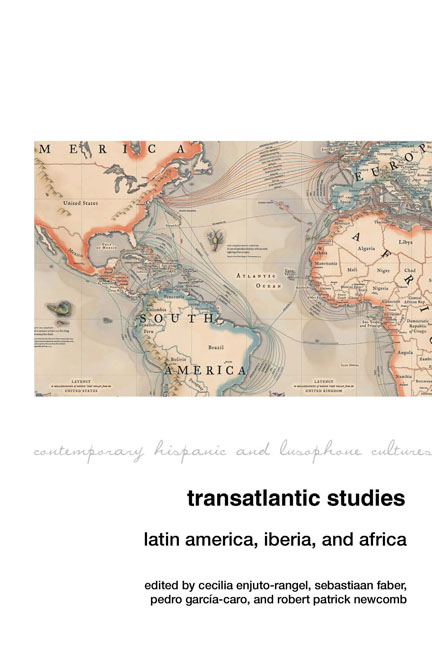Book contents
- Frontmatter
- Contents
- Introduction: Transatlantic Studies: Staking Out the Field
- Transatlantic Methodologies
- Transatlantic Linguistic Debates
- Transatlantic Displacement
- Transatlantic Memory
- Transatlantic Postcolonial Affinities
- Transatlantic Influence
- Epilogue: The Futureâif There Is OneâIs Transatlantic
- Index
16 - Children's Gaze in Contemporary Cinema: A Transatlantic Poetics of Exile and Historical Memory
- Frontmatter
- Contents
- Introduction: Transatlantic Studies: Staking Out the Field
- Transatlantic Methodologies
- Transatlantic Linguistic Debates
- Transatlantic Displacement
- Transatlantic Memory
- Transatlantic Postcolonial Affinities
- Transatlantic Influence
- Epilogue: The Futureâif There Is OneâIs Transatlantic
- Index
Summary
Exile is strangely compelling to think about but terrible to experience. It is the unhealable rift forced between a human being and a native place, between the self and its true home: its essential sadness can never be surmounted.
Edward Said, Reflections on ExilePolitical exiles are marked, as Said pinpoints, by a rift, a torn self, whose past and present often collide; in their need to tell their story, exiles tend to prefer a fragmentary discourse, sometimes nostalgic for the lost home, often traumatized, evasive, or disenchanted with the present. Their testimonies should be read as political and ethical acts. Exile as a term comes from the Latin exilium, banishment, and it has come to mean “the state of being barred from one's native country, typically for political or punitive reasons,” as defined by the Oxford English Dictionary. But we can define exile in many ways. We may even include the experience of those who never leave: tortured political prisoners, for example, or internal exiles who stay and resist the fissure between the self and their country. In this essay, I will examine two contemporary films whose child protagonists end up in exile due to the violent military regimes in their respective native countries: Paisito [Small country] (2008), a Spanish-Uruguayan-Argentine co-production that attempts to construct a transatlantic poetics of exile and memory, and yet fails; and the Brazilian film O ano em que meus pais saíram de férias [The Year My Parents Went on Vacation] (2006), which places exiles at the center of a nostalgic, nationalist discourse in which Brazil appears as an idealized multiethnic, multicultural, and multiracial space threatened by the military dictatorship.
Both Paisito and The Year represent the 1970s in Uruguay and Brazil, countries torn by a military coup and a military dictatorship. In both films, soccer is presented as a central space, although it is at times questioned as a force for national cohesion; and in both films the child protagonists face exile when their fathers are killed by the military regimes. Both expose how the state uses soccer as a tool of collective appeasement, and yet the nostalgic recuperation of soccer as a game in both films seems in some way to infantilize the politics of memory.
- Type
- Chapter
- Information
- Transatlantic StudiesLatin America, Iberia, and Africa, pp. 193 - 205Publisher: Liverpool University PressPrint publication year: 2019

